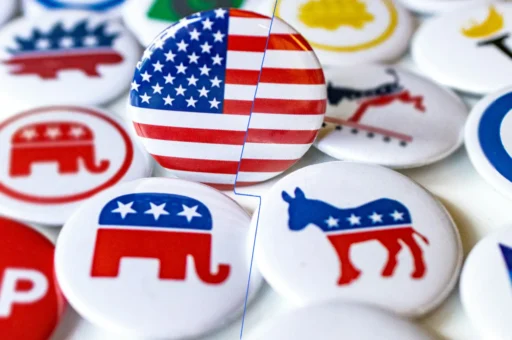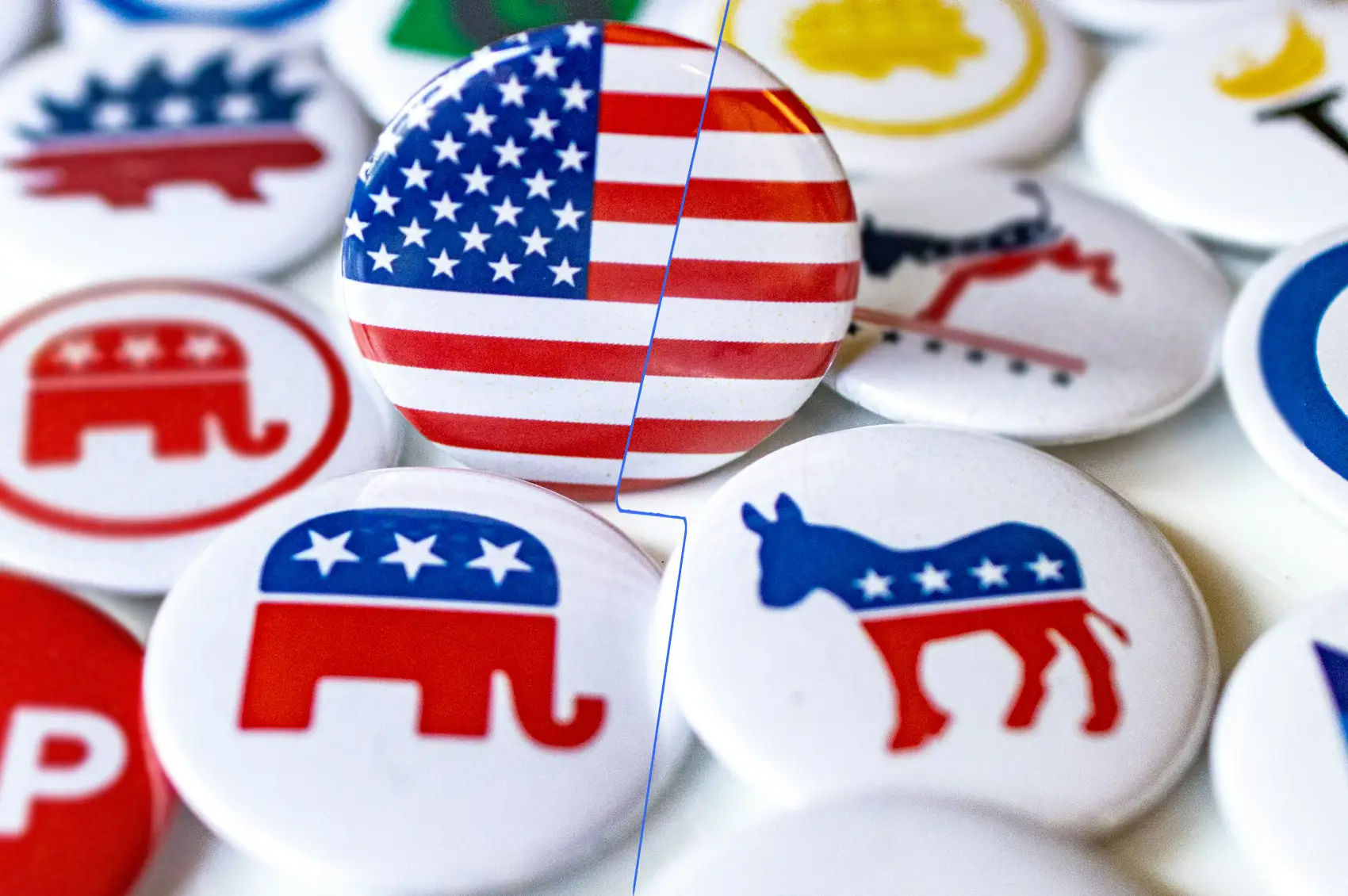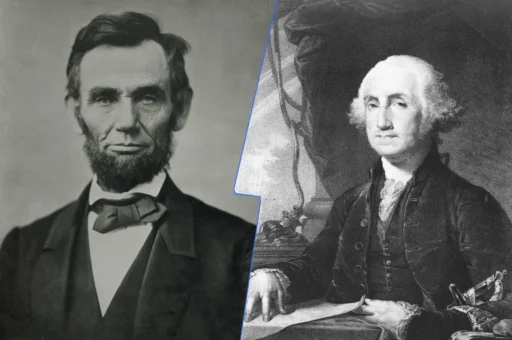Introduction
The Democratic and Republican parties are the two dominant political forces in the United States. They represent distinct ideologies, policies, and visions for the country’s future. This article delves into the histories, achievements, and policy positions of both parties, offering insights into what makes them unique and why they resonate with millions of Americans.
Overview of Democrats and Republicans
Democrats
The Democratic Party, founded in 1828, is one of the oldest political parties in the world. It has evolved from its early days as a party supporting states’ rights and slavery to its current stance as a champion of social justice, economic equality, and progressive reforms. The Democratic Party’s symbol is the donkey, and its color is blue.
Republicans
The Republican Party, established in 1854, was founded as an anti-slavery party and has since become the party of limited government, free-market capitalism, and conservative values. The party’s symbol is the elephant, and its color is red. Republicans often emphasize individual responsibility, national security, and traditional social values.
Detailed Analysis of Each Party
Democrats
History and Creation
The Democratic Party traces its origins to the early 19th century, with Andrew Jackson as its first president. The party originally supported agrarian interests, states’ rights, and slavery, but it shifted towards progressive policies in the 20th century under leaders like Franklin D. Roosevelt and John F. Kennedy. The New Deal, Civil Rights Movement, and Great Society programs were all Democratic initiatives that reshaped American society.
Five Greatest Achievements
- The New Deal: Franklin D. Roosevelt’s programs helped lift the U.S. out of the Great Depression.
- Civil Rights Act of 1964: Landmark legislation that ended segregation and promoted racial equality.
- Affordable Care Act (2010): Expanded healthcare coverage to millions of Americans.
- Social Security Act (1935): Established the Social Security system, providing financial security for retirees.
- Medicare and Medicaid (1965): Created government-funded healthcare programs for the elderly and low-income individuals.
Allies and Enemies
- Allies: Traditionally, Democrats have strong support from labor unions, minority groups, and urban voters. Internationally, they align with social democratic parties in Europe and support multilateral institutions like the United Nations.
- Enemies: The party often faces opposition from conservative groups, large corporations opposing regulations, and rural voters who feel alienated by progressive policies.
Position on Key Issues
- Racism: The Democratic Party actively supports policies to combat systemic racism and promote social justice.
- Relations with China, Russia, and Europe: Democrats generally advocate for diplomacy and multilateralism. They take a firm stance against Russian aggression, seek balanced trade with China, and prioritize strong alliances with European nations.
- Russia-Ukraine War: Democrats support Ukraine with military and financial aid, advocating for sanctions against Russia.
- Israel-Palestine Conflict: The party supports a two-state solution, balancing Israel’s security with Palestinian rights.
Domestic Policies
- Wars: While advocating for diplomacy, Democrats have led the U.S. into wars like Vietnam and interventions in the Middle East.
- Education: Strongly support public education, student loan reform, and increased funding for schools.
- Environment: Democrats champion climate change action, promoting green energy and sustainability.
- Healthcare: Advocate for expanded access to healthcare, including a public option.
- Economy and Crypto: Favor progressive taxation, regulation of financial markets, and are cautiously open to cryptocurrency regulation.
- Racism: Push for policies that address racial inequality, criminal justice reform, and police accountability.
Republicans
History and Creation
The Republican Party was founded in 1854 by anti-slavery activists and gained prominence with the election of Abraham Lincoln in 1860. The party initially focused on preserving the Union and abolishing slavery. Over time, it evolved into a party that champions limited government, free-market policies, and social conservatism.
Five Greatest Achievements
- Abolition of Slavery: Led by Abraham Lincoln, the Republicans ended slavery in the U.S.
- Reaganomics (1980s): Economic policies that reduced taxes and deregulated industries, boosting economic growth.
- Civil Rights Act of 1957: Initiated civil rights legislation to protect voting rights.
- End of the Cold War (1989): Republicans, under Ronald Reagan, played a crucial role in ending the Cold War.
- Tax Cuts and Jobs Act (2017): Significant tax reform aimed at stimulating economic growth.
Allies and Enemies
- Allies: Republicans traditionally align with business interests, evangelical Christians, and rural voters. Internationally, they support strong alliances with Israel and NATO, and they favor bilateral trade agreements.
- Enemies: The party often faces opposition from progressive groups, labor unions, and countries that challenge U.S. dominance, such as China and Iran.
Position on Key Issues
- Racism: Republicans emphasize equal opportunity rather than affirmative action, often opposing policies they see as favoring one race over another.
- Relations with China, Russia, and Europe: Republicans take a hardline stance on China, advocating for stronger sanctions and tariffs. They have a more pragmatic relationship with Russia and are skeptical of European multilateralism.
- Russia-Ukraine War: The party is divided, with some supporting aid to Ukraine while others advocate for focusing on domestic issues.
- Israel-Palestine Conflict: Strongly support Israel, often backing policies that favor Israel’s security and sovereignty.
Domestic Policies
- Wars: Republicans have led the U.S. into wars, including Iraq and Afghanistan, emphasizing national security.
- Education: Advocate for school choice, charter schools, and reducing federal control over education.
- Environment: Skeptical of climate change regulations, focusing on energy independence and reducing regulations on industries.
- Healthcare: Prefer market-based solutions, opposing government-run healthcare systems.
- Economy and Crypto: Favor deregulation, lower taxes, and are more open to cryptocurrency innovation.
- Racism: Emphasize law and order, opposing policies they perceive as divisive or discriminatory.
Numbers and Statistics
Wars and Conflicts
- Democrats: Led the U.S. into conflicts like World War II, Korea, Vietnam, and various Middle Eastern interventions.
- Republicans: Led the U.S. into World War I, Iraq, and Afghanistan, with a focus on national security.
Spending on Key Areas
- Democrats: Spent trillions on social programs like Medicare, Medicaid, and the Affordable Care Act.
- Republicans: Spent heavily on defense, tax cuts, and deregulation efforts.
Public Support
- Democrats: Historically strong in urban areas, among minorities, and younger voters.
- Republicans: Strong in rural areas, among white voters, and evangelical Christians.
Impact on Global and Domestic Policies
Influence on Geopolitics
- Democrats: Focus on diplomacy, multilateralism, and alliances to address global challenges.
- Republicans: Prioritize military strength, economic sanctions, and bilateral agreements to protect U.S. interests.
Economic Effects
- Democrats: Advocate for a mixed economy, with government intervention in healthcare, education, and climate change.
- Republicans: Promote free-market capitalism, tax cuts, and reduced government intervention.
Conclusion
The Democratic and Republican parties offer distinct visions for America’s future, reflecting the diverse political landscape of the United States. While Democrats focus on social justice, healthcare, and climate change, Republicans prioritize economic freedom, national security, and traditional values. Both parties have shaped the country in profound ways, and their continued influence will determine the direction of U.S. policy for years to come.
An Optimistic Message for Unity
Despite their differences, Democrats and Republicans share a common goal: to make America a better place for future generations. By focusing on common ground and fostering dialogue, there is hope for a more united and prosperous nation.
Engage with Us
What are your thoughts on the differences between Democrats and Republicans? Share your perspectives in the comments below, and join the conversation on social media.
Inbound Link Suggestions:
- Comparing Two Giants: Abraham Lincoln & George Washington
- Joe Biden vs. Donald Trump: Comparing Former Presidents
- Gold vs. Bitcoin: Old Investments Against New Technology
Outbound Link Suggestions:





